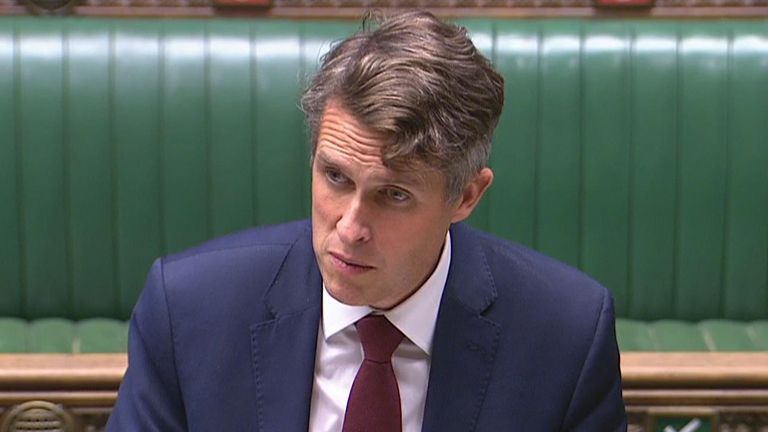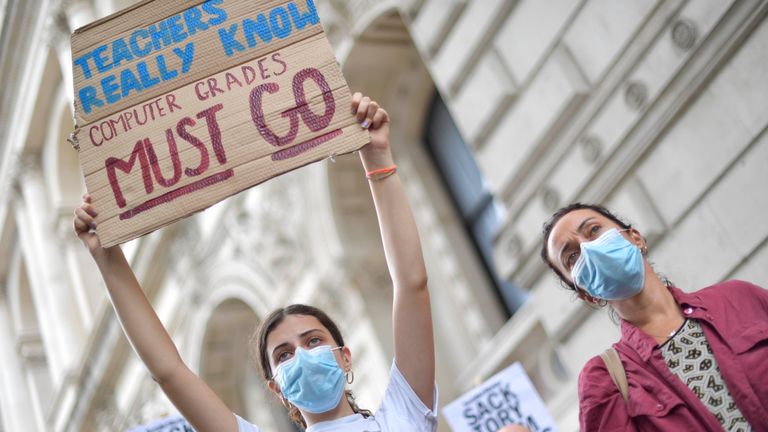It was a “fundamental mistake” to believe a controversial algorithm initially used for A-level and GCSE results would “ever be acceptable to the public”, the head of the exams watchdog has said.
Roger Taylor, chair of Ofqual, launched a full-throated defence of the body’s role in the exams fiasco during an appearance in front of MPs.
:: Follow live coverage of the latest coronavirus news and updates
He told the education select committee that the body advised the government against cancelling this summer’s exams because of the coronavirus pandemic.
Ofqual suggested to Education Secretary Gavin Williamson that they be held in a “socially distanced manner” due to COVID-19, Mr Taylor added.
Mr Taylor told MPs that the situation was “rapidly getting out of control” and policies were being put forward by Mr Williamson that “weren’t consistent with our legal duties”.
The education secretary has resisted calls to resign over the row, but told Sky News last month he is “incredibly sorry for the distress” caused to students.
He said up until A-level results day he had “every confidence” the algorithm would not penalise disadvantaged students.
But over the following weekend, when he said “it became clear there were anomalies”, the government U-turned and reverted back to using teachers’ predicted grades for A-levels and GCSEs.
When the results were released it was revealed that nearly 40% of A-level marks had been downgraded in England.
The system also appeared to advantage private schools, which saw nearly double the number of increases in top marks year-on-year compared to state comprehensives.
Boris Johnson was accused of “shamelessly trying to avoid taking responsibility” for the debacle after blaming the “mutant” algorithm.
The prime minister had previously defended the system, describing the marks given to students as “robust” and “dependable”.


